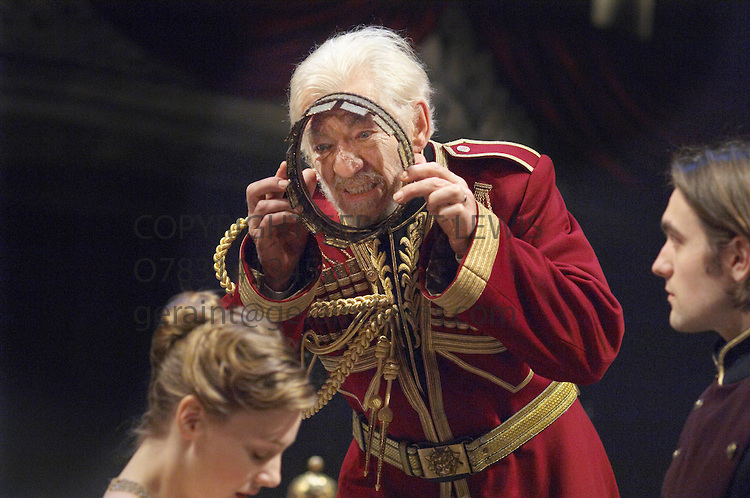The New Yorker’s Adam Gopnik makes great use of a King Lear passage to dismantle accusations that Obama is weak and effeminate. Gopnik observes that Obama’s critics aren’t actually advocating, with regard to foreign policy, that Obama do anything other than what he is doing. They just want him to look fiercer:
The curious thing, though, is how much the talk about manliness—and Obama’s lack of it—is purely and entirely about appearances. In the current crisis over the downed Malaysian plane, all the emphasis is on how it looks or how it might be made to look—far more than on American interests and much less on simple empathy for the nightmarish fate of the people on board. The tough-talkers end up grudgingly admitting that what the President has done—as earlier, with Syria—is about all that you could do, given the circumstances. Their own solutions are either a further variant on the kinds of sanctions that are already in place—boycott the World Cup in Russia!—or else are too militarily reckless to be taken seriously. Not even John McCain actually thinks that we should start a war over whether Donetsk and Luhansk should be regarded as part of Ukraine or Russia. The tough guys basically just think that Obama should have looked scarier. The anti-effeminate have very little else to suggest by way of practical action—except making those unambiguous threats and, apparently, baring your teeth while you do.
The Shakespeare passage that Gopnik quotes occurs at the moment where Lear’s heartless daughters have just ruthlessly and systematically stripped their father of all dignity, denying him even a single retainer. Sputtering like a child, Lear brandishes nameless threats:
No, you unnatural hags,
I will have such revenges on you both,
That all the world shall–I will do such things,–
What they are, yet I know not: but they shall be
The terrors of the earth.
The United States is not as impotent as Lear in this moment although crippling itself through its invasions of Iraq and Afghanistan bears some resemblance to Lear crippling himself through giving up his kingdom. The invasions of the Bush years have left the United States exhausted and unwilling to start any more wars. As a result, our neoconservatives can do no more than throw temper tantrums. Here’s the continuation of the Lear passage:
You think I’ll weep
No, I’ll not weep:
I have full cause of weeping; but this heart
Shall break into a hundred thousand flaws,
Or ere I’ll weep. O fool, I shall go mad!
At this point Lear plunges into the storm and proceeds to rail, Dick Cheney-like, at the unfairness of his fate.
There’s a glimmer of hope in King Lear, however. His utter humiliation leads him to discover the love of Cordelia. By the end of the play, tragic though it is, Lear has gotten his priorities straight.
Gopnik wonders whether we can as well:
We don’t need tough guys. We need wise guys. We’ve tried tough guys, and it always ends in tears. Tough guys you know right away because they’re never scared of a fight. Wise guys you only know in retrospect, when you remember that they quietly walked away from the fight that now has the tough guy in a hospital. Wise women do that, too.
Will we appreciate Obama only in retrospect?


